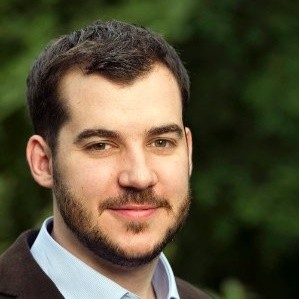Case Study: How Festival Crew Have Harnessed a New Event Format
We sat down with Ernest Cantillon of Festival Crew to talk about the changing landscape of the Irish festivals scene and what his plans are for 2018.
Tell us about how Festival Crew got started.
I used to run traditional festivals like Cork Food Festival, which catered for up to 25,000 visitors over one weekend. These types of events can deliver great value to both the organisers and the attendees, and when they work, they work – but they can also cost a lot to run and are limited to that one weekend a year. On top of that, the weather is often a risk factor.
So, I started thinking about what we could do to still provide this festival experience but in a more accessible way – less cost, more frequency and more locations/venues getting involved.
So, in 2015 Festival Crew formed with the aim of “bringing the festival to you”.
The model ensures footfall is driven to participants’ premises, an increase in turnover during traditionally quieter times and gives you full control over what you want to do and how you do it.
What kind of festivals do you run?
Our events vary but most are food and drink related and involve multiple venues at any one time – these started as venues around Cork City, then spread to the county and have recently become nationwide. We have run whiskey festivals, dessert festivals and seafood festivals, amongst others.
The venues (bars, restaurants, hotels, pop-ups, cafes) involved all run their own on-site events during the festival and there is a real focus on using local suppliers and produce. The events can be educational – for example at the Whiskey Festival, experts will talk the attendees through the best liquor to use with chocolates or coffee-based drinks.
At the Burger Festival, where hundreds of participating venues/suppliers across the country took part this year, “meet the producer” events were held where attendees heard from an experienced chef and the local butcher about the farmer who raises the cattle, and the difference between grain-fed and grass-fed cattle.
Attendees had a chance to ask questions to experts across the food chain and they came away having learned something.
How do you typically promote your events?
We typically find that the participating venues, suppliers, experts, etc. create a megaphone effect for us. They all make noise about their own events across their social channels, on websites, and via promotional material at their venues and around their cities. In the background, commercial partnerships are forming between participants and they support and promote each other too.
Why did you move your ticketing over to Eventbrite?
Initially, the move came about when we ran the standalone, traditional festivals – we had an issue with our old ticket provider and had to move quickly and Eventbrite was easy to use and our event page looked great. We were sold.
We now recommend Eventbrite to all our participating venues as many of them won’t be used to running events so using Eventbrite as a ticketing platform allows them to control attendance and be prepared.
It also allows them to capture attendee data which enables them to refine their targeting for future events.
What success have you seen with Festival Crew? And what’s next?
Across our 13 festivals so far, we have had all participating venues and businesses sign up again for the following year – this is an important mark of success for us. On top of that, all venues have seen over 90% increase in spend per head, turnover or both!
We have also expanded from being city based, to county based and are now nationwide. What’s next? We intend to bring our Burger Festival to the UK next – watch this space.
Finally, what one piece of advice would you give to new event organiser starting up an event in Ireland?
People love experiences.
Create events that people want to go to – start with the experience in mind.
A good festival is about offering an experience or collection of experiences that aren’t readily and frequently available but that people want to be a part of
People need to have a broader idea of what a festival is, it’s not just the big, annual festivals anymore – attendees have more options. Festivals are changing and we are seeing that attendees are open to that change – this is just the beginning.